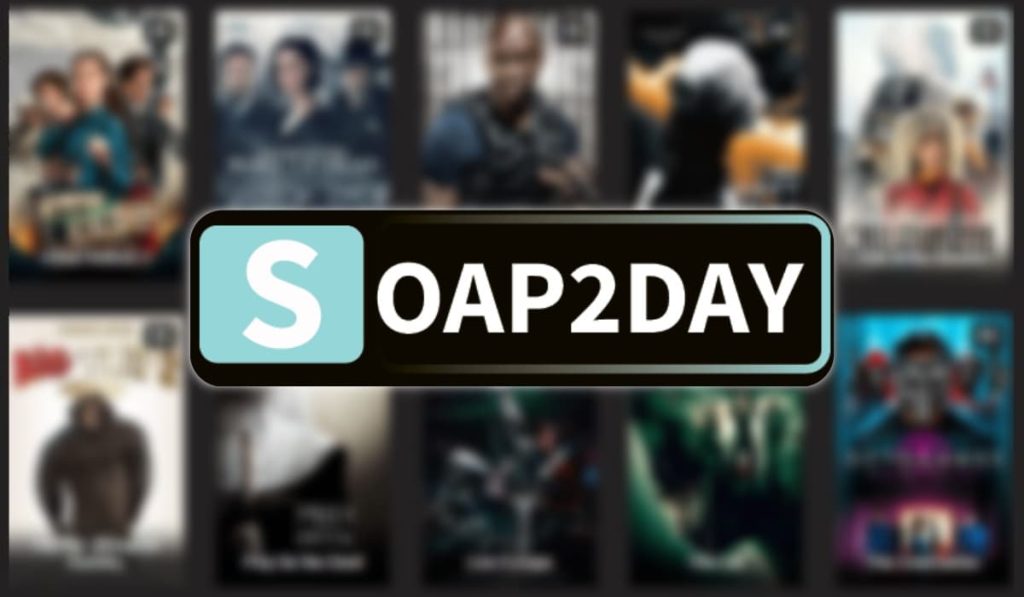In the world of online streaming, where giants like Netflix, Hulu, and Disney+ have dominated the Soup2Day, there has always been a shadowy undercurrent of piracy-driven platforms. One of the most infamous among them was Soup2Day, a website that offered free access to an extensive collection of movies and TV shows. For many, it became the go-to destination for pirated content. Despite its appeal to millions of users, its existence was short-lived due to the legal and ethical battles it faced.
What Was Soup2Day?
Soup2Day was a pirated streaming website that offered thousands of movies and TV shows without the need for subscriptions, ads, or geo-restrictions. Unlike legitimate platforms that require users to pay for content, Soup2Day provided everything for free, making it attractive to those unwilling to subscribe to multiple services.
What set Soup2Day apart from some other pirate websites was its clean, user-friendly interface and extensive library. It often featured the latest releases—sometimes even before they were available on legal platforms. Soup2Day’s servers were known for their reliability, rarely crashing despite the high number of users accessing the content simultaneously.
However, while it offered an appealing user experience, it also operated in a legal gray area, which eventually led to its downfall.
The Popularity of Pirate Streaming Sites
Soup2Day wasn’t the first or only illegal streaming site, but it gained immense popularity for several reasons:
- Free Access: In an age where streaming services are abundant and subscriptions pile up, many users turned to Soup2Day as a way to avoid paying for multiple platforms.
- Content Diversity: It hosted content from various regions, genres, and eras, often surpassing legitimate platforms in the diversity of its offerings.
- Ease of Use: Unlike torrenting, where users need to download files and risk malware, Soup2Day was a streaming service. Users could simply click and play, with no need to download anything.
- Anonymity: Many users flocked to Soup2Day because it required no sign-up or personal information, giving them a false sense of security regarding legal consequences.
Legal Battles and Shutdown
Despite its popularity, Soup2Day’s very nature made it a target for legal action. Like many pirate sites, it infringed on intellectual property rights by distributing copyrighted content without the permission of the owners. This put the platform in direct conflict with major film studios, television networks, and streaming companies, all of whom have been aggressively targeting pirate sites.
Governments and copyright enforcement agencies started to take notice. In many countries, accessing or distributing pirated content is illegal, and users and operators of such sites can face severe penalties.
In early 2021, Soup2Day, along with many other pirate sites, was shut down. The exact reasons behind its closure were likely a combination of mounting legal pressure, server hosting difficulties, and financial strain from operating such a large site illegally. Authorities in the U.S., Europe, and other regions began a concerted effort to crack down on these illegal operations, making it harder for platforms like Soup2Day to sustain their operations.
The Consequences of Using Pirate Streaming Platforms
While Soup2Day may have provided free access to content, the risks associated with using such platforms are significant:
- Malware: Many pirate streaming sites are rife with malware and intrusive ads that can infect users’ devices. Though Soup2Day was relatively clean in terms of pop-ups, other clone sites often weren’t as safe.
- Legal Risks: While casual users may feel anonymous, many countries have strict anti-piracy laws. Fines or legal action can be taken against individuals who access pirated content.
- Content Quality: Pirate platforms often suffer from poor video and audio quality, incorrect subtitles, and incomplete or misleading uploads.
- Loss of Revenue for Creators: Piracy directly impacts the revenue of content creators, from actors and filmmakers to writers and animators. As more people opt for illegal streaming, the industry loses out on potential income, which can stifle future productions.
The Future of Pirate Streaming
Despite the demise of Soup2Day, the appetite for free, illegal streaming has not disappeared. Other pirate websites have filled the void left by Soup2Day, and new platforms continue to spring up. However, with increased international cooperation to combat piracy and advancements in digital rights management (DRM) technologies, it is becoming more difficult for these sites to operate.
Streaming giants are also adapting by consolidating content under fewer platforms, bundling services, and offering more regional content. Some services have introduced ad-supported free tiers, targeting users who seek free options legally.
Conclusion
Soup2Day was a temporary yet influential player in the world of online piracy. While it satisfied the demand for free, easily accessible content, it also highlighted the broader issues of content access and the dangers of piracy. The shutdown of the site serves as a reminder that, despite the allure of free entertainment, the legal and ethical consequences of piracy can be far-reaching.
FAQs
1. What was Soup2Day?
Soup2Day was a popular illegal streaming website where users could watch movies and TV shows for free. It provided a vast library of content, including newly released movies and popular TV shows, without requiring any subscription fees or personal information.
2. Why was Soup2Day popular?
Soup2Day gained popularity due to its:
- Free access to thousands of movies and TV shows
- User-friendly interface
- Broad range of content, from recent releases to classics
- Ease of use, requiring no sign-up or downloads
3. Is Soup2Day still operational?
No, Soup2Day was shut down in 2021 as part of a larger crackdown on illegal streaming websites. Authorities targeted pirate platforms like Soup2Day for violating copyright laws and distributing content without the rights holders’ permission.
4. Is using Soup2Day or similar sites illegal?
Yes, using sites like Soup2Day to stream copyrighted content is illegal in most countries. Accessing, distributing, or downloading pirated content violates intellectual property laws, and both site operators and users can face legal penalties, including fines or imprisonment.
5. Can I get in trouble for watching content on Soup2Day?
While enforcement varies by country, some users of pirate sites have faced legal action. In many regions, authorities are cracking down on both the creators of such sites and individuals who use them. It’s essential to know the risks of accessing pirated content.
6. Was Soup2Day safe to use?
Although Soup2Day did not require downloads, like many other pirate streaming sites, it could expose users to:
- Malware and viruses: Some ads or links may lead to harmful software.
- Phishing scams: Personal information can be at risk if users unknowingly engage with fraudulent pop-ups.
- Tracking: Users of pirated sites are not as anonymous as they might think, and their browsing activities can be tracked.
7. What are the alternatives to Soup2Day?
There are legal streaming services like Netflix, Hulu, Amazon Prime, Disney+, and others that offer affordable access to a wide range of content. Additionally, many services now provide free, ad-supported tiers, making legitimate streaming more accessible.
8. Why are pirate streaming sites like Soup2Day being shut down?
Pirate streaming sites are illegal because they distribute copyrighted material without the consent of content creators or studios. This causes a loss in revenue for the entertainment industry and can reduce the funding available for future productions.



